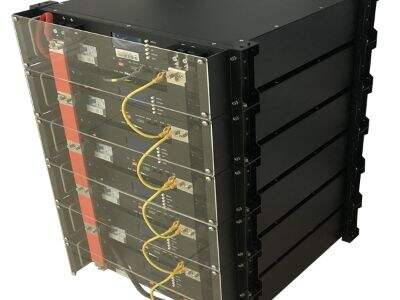Hola amigos. ¿Tienes en mente una energía solar? Es un gran enfoque para hacer ambas cosas mientras también ahorras en tus facturas de electricidad. Un héroe silencioso en este aspecto es un componente esencial llamado inversor, que permite que la energía solar alimente tu vivienda. El inversor convierte la energía del sol en electricidad que puedes suministrar a tu hogar. Y ahí es donde entra Ningbo Anbo United Electric Appliance: quiere ser el que te ayude a elegir el inversor ideal para tu sistema solar.
¿Qué Es Un Inversor?
¿Qué diablos es un inversor? Un inversor es un dispositivo único que convierte la energía de corriente directa (DC) que generan los paneles solares en energía de corriente alterna (AC). Esto se debe a que la energía AC es necesaria para que todos tus electrodomésticos funcionen correctamente. La inversión se refiere a convertir la energía DC en energía AC. En términos sencillos, es una forma de que el sol dialogue con tus aparatos.
Elegir el Inversor Correcto
Los dos tipos principales de inversores con los que deberías familiarizarte son los inversores de cadena y los microinversores. Los inversores de cadena son el tipo más popular. Se conectan a un conjunto de paneles solares, comúnmente conocido como una “cadena”. Sin embargo, los microinversores son otra historia. Se instalan en cada panel solar individualmente. En otras palabras, los microinversores pueden contribuir al rendimiento individual de cada panel. Entonces, ¿qué inversor deberías elegir para tu sistema solar?
Factores a considerar al seleccionar un inversor
Consideraciones para la selección de un inversor de energía solar
Costo: Los microinversores tienden a ser más caros que los inversores de cadena. Aunque podrían ser más efectivos en ciertas áreas, tienes que considerar tu situación financiera. Quieres obtener un buen valor por tu dinero en un inversor de energía solar para el hogar .
Tamaño del Sistema Solar: El tamaño de tu sistema solar es importante. Para sistemas solares más pequeños, un inversor en cadena puede ser suficiente para tus necesidades. Los microinversores de alta eficiencia pueden hacer un mejor trabajo al equilibrar los efectos de la sombra en los paneles solares individuales, por lo que si tienes un gran sistema solar o mucha sombra de árboles o edificios, podrías estar mejor con microinversores que con inversores en cadena. inversor de energía solar .
Monitoreo: Algunos inversores vienen con una característica beneficiosa llamada Monitoreo. Esto significa que vienen con software para ayudarte a monitorear cómo está funcionando tu sistema solar. Esto debería ayudarte a asegurarte de que todo funcione correctamente y de manera eficiente.
Garantía: Busca un inversor que ofrezca una garantía sustancial. La garantía es una especie de promesa hecha por el fabricante de que te ayudará si ocurre algo malo. Esta protección es vital si tienes problemas con tu inversor híbrido de energía solar .
Una Guía para Elegir el Inversor Solar Correcto para Ti
Utiliza esta lista de verificación práctica para ayudarte a comparar inversores:
Tipo de inversor: Elige entre inversor de cadena o microinversor según tus necesidades.
Eficiencia: Elige inversores con altas calificaciones de eficiencia. Eso significa que pueden maximizar la producción de energía de tus paneles solares.
Capacidad: Asegúrate de que el inversor que elijas pueda manejar toda la electricidad que producirán tus paneles solares. Esto es crucial para asegurarte de que tu equipo funcione de manera óptima.
Monitoreo: Decide si quieres un software de monitoreo para seguir el rendimiento de tu sistema solar.
Garantía: Considera cuánto dura la garantía y qué cubre. Esto te dará una idea de lo que está incluido y por cuánto tiempo.
Guía para seleccionar el mejor inversor para tus necesidades
Así que habiéndote preparado para saber qué buscar, aquí tienes algunos consejos expertos de los especialistas en Ningbo Anbo United Electric Appliance:
Costo: Ten en cuenta que los microinversores pueden ser más eficientes pero vienen a un precio premium. Cuando finalmente tomes tu decisión, asegúrate de obtener un buen valor por tu dinero.
Expansión Futura: Si crees que podrías querer agregar más paneles solares en el futuro, asegúrate de seleccionar un inversor que tenga la capacidad para manejar la energía adicional.
Compatibilidad: Este es un aspecto clave a tener en cuenta. Algunos inversores funcionan solo con tipos específicos de paneles solares. Asegúrate de que el inversor que selecciones sea compatible con los paneles que tienes o vas a comprar.
Obtén Asesoramiento: Por último, ponte en contacto con un instalador solar. Ellos podrán decirte qué inversor sería el mejor para tu situación y uso requerido. Pueden responder cualquier pregunta que tengas y ayudarte a determinar la mejor opción.
Y eso es todo, amigos. Ahora que están equipados con todo este conocimiento, podrán seleccionar el inversor adecuado para su planta solar. Tengan en cuenta que deben considerar su presupuesto, el tamaño de su sistema, las opciones de monitoreo disponibles y la garantía al hacer una compra. Y sobre todo, recuerden que la energía solar es una excelente manera de ahorrar dinero en su electricidad y ayudar a salvar el planeta.

 EN
EN
 AR
AR
 BG
BG
 HR
HR
 CS
CS
 DA
DA
 NL
NL
 FI
FI
 FR
FR
 DE
DE
 EL
EL
 HI
HI
 IT
IT
 JA
JA
 KO
KO
 NO
NO
 PL
PL
 PT
PT
 RO
RO
 RU
RU
 ES
ES
 SV
SV
 TL
TL
 ID
ID
 UK
UK
 VI
VI
 TH
TH
 FA
FA
 AF
AF
 MS
MS
 BE
BE
 BN
BN
 LO
LO
 NE
NE
 MY
MY
 KK
KK
 SU
SU
 UZ
UZ
 KY
KY
 XH
XH








